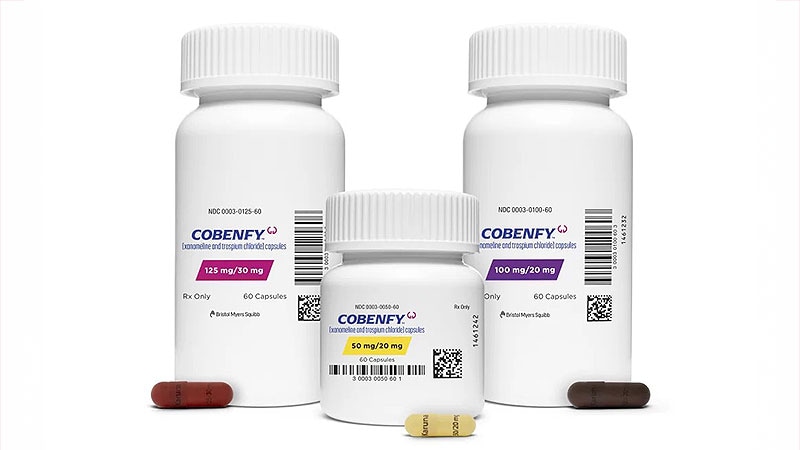Hyperglycemia: A Risky Side Effect of Certain Cancer Drugs Hyperglycemia: A Risky Side Effect of Certain Cancer Drugs
April 25, 2025Memory, Mood Symptoms Form Feedback Loop in Older Adults Memory, Mood Symptoms Form Feedback Loop in Older Adults
April 25, 2025
Adjunctive use of xanomeline/trospium chloride (Cobenfy) offered no statistically significant benefit over placebo in adults with symptoms of schizophrenia inadequately controlled by an atypical antipsychotic, according to top-line results from the phase 3 ARISE study.
However, adjunctive use of the first-in-class antipsychotic did show a numerical improvement compared with treatment with placebo and an atypical antipsychotic, Bristol Myers Squibb reported in a release.
“Adjunctive treatment trials in schizophrenia present significant clinical and methodological challenges,” Husseini Manji, MD, professor, Department of Psychiatry, Oxford University, Oxford, England, said in the release. “Although Cobenfy did not demonstrate a statistically significant improvement as an adjunctive treatment in this trial, the data are encouraging, showing a noteworthy improvement for the majority of patients in the trial, as well as a tolerable safety profile.”
The US Food and Drug Administration (FDA) approved xanomeline/trospium for schizophrenia in September last year, as reported by Medscape Medical News.
The drug targets cholinergic receptors as opposed to dopamine receptors, which has been the standard of care for more than 30 years. Xanomeline is an oral muscarinic cholinergic receptor agonist, and trospium chloride is an oral pan-muscarinic receptor antagonist.
FDA approval was based on results from the EMERGENT-2 and EMERGENT-3 trials, both of which met their primary endpoints, demonstrating statistically significant reductions in schizophrenia symptoms with xanomeline/trospium vs placebo, as measured by the Positive and Negative Syndrome Scale (PANSS) total score change from baseline to week 5.
The phase 3 ARISE study was a 6-week, randomized, double-blind, placebo-controlled, multicenter, outpatient study evaluating xanomeline/trospium as an adjunctive treatment in adults with schizophrenia who have inadequate response to their current antipsychotic treatment.
According to the top-line results, at week 6, adjunctive xanomeline/trospium treatment vs placebo demonstrated a 2.0-point reduction in the PANSS total score with an atypical antipsychotic, which did not reach the threshold for statistical significance for the primary endpoint (P = .11).
Preliminary analyses suggested that compared with add-on placebo, add-on xanomeline/trospium was associated with improvements in symptoms of schizophrenia in certain patients.
“In a post hoc subgroup analysis, there was a notable difference in response between subjects treated with risperidone as a background therapy compared with the remaining subjects treated with other background antipsychotics (non-risperidone),” Bristol Myers Squibb reported.
The company said it will complete a full evaluation of the phase 3 trial data and present detailed results at an upcoming medical conference.
“Historically, the development of an effective, adjunctive treatment for schizophrenia has been difficult due to inherent challenges like variable patient response, stringent trial design requirements, and the complexities of demonstrating incremental benefits beyond established antipsychotics,” said Samit Hirawat, MD, executive vice president, chief medical officer, and head of development at Bristol Myers Squibb, said in the release.
The company is currently evaluating xanomeline/trospium across multiple neuropsychiatric conditions, including symptoms associated with Alzheimer’s disease and autism spectrum disorder, bipolar disorder and “other areas of significant clinical need,” Hirawat said.
